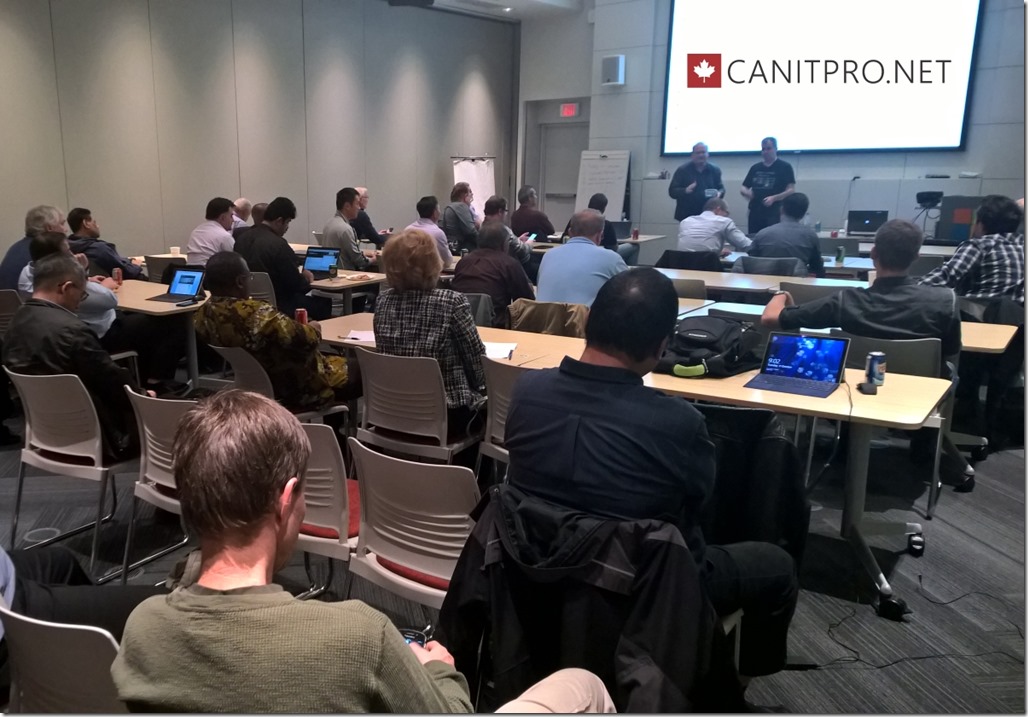Step-By-Step: Installing MySQL on Nano Server via PowerShell
Recently, Pierre Roman was in town presenting 10 Things I like About Windows Server 2016 to the Toronto ITPRO Usergroup. While presenting, he white-boarded a couple of questions for Pierre and I to address on CANITPRO.NET later via a blog post.
One such question was as follows:
“Can you install SQL on a Nano Server?”
SQL requires lots of features to be enabled in the underlying operating system. While it is possible to install SQL on a Server Core offering of Windows Server, albeit painful, SQL cannot be installed on a Nano Server at the time of this post being published. There is a possibility of SQL enablement that could occur with the utilization of containers which we’ll explore in a later post.
With this in mind, it is possible to natively install MySQL on Nano. While it may not be as robust as SQL, for some this may just do the trick. This Step-By-Step post will detail the process required to complete this.
Step 1: Setup a Nano Server VM
MVP Sean Kearney does an excellent job of detailing the setup in his post: Step-By-Step: Deploying Nano Server Found in Windows Server 2016 TP5
Step 2: Installing MySQL on Nano Server
Download mysql-5.7.13-winx64.zip and unzip the file to a local folder on your admin machine
Rename the innermost mysql-5.7.13-winx64 folder to MySQL
Run the following PowerShell script from an elevated PowerShell console to copy the binaries to your Nano Server machine:
$ip = “0.0.0.0” # Nano Server IP address $s = New-PSSession -ComputerName $ip -Credential ~\Administrator Copy-Item -ToSession $s -Path .\MySQL” -Destination C:\ -Force -Recurse
Step 3: Setting up your environment
Remote into your newly created Nano Server machine and enter the following:
Enter-PSSession $sEnter the following to add the MySQL\bin folder to your path environment variable:
$env:path += “;C:\MySQL\bin”Next you need to enter the following to make this change persist even after the Nano Server reboots:
setx PATH $env:path /MNow enter the following to ensure the MySQL instance is present:
mysql –version # displays the MySQL versionEnter the following to initialize the MySQL daemon and ignore the warnings for now:
mysqld –initialize –consoleCreate mysql-init.txt and replace PASSWORD with your own:
Set-Content -Value “ALTER USER ‘root’@’localhost’ IDENTIFIED BY ‘PASSWORD’;” -Path c:\mysql\mysql-init.txt -Encoding AsciiPass mysql-init.txt to the MySQL daemon for initialization:
mysqld –init-file=c:\\mysql\\mysql-init.txt –consoleStop the daemon using Ctrl+C and type the following to install the service:
mysqld –installThe service is now installed, and needs to be started with the following:
Get-Service MySQL Start-Service MySQL Get-Service MySQLDisplay the system databases using the assigned password established when mysql-init.txt was created and yes ignore the warning:
mysql –user=root –password=myPassword -Bse “SHOW DATABASES;” > mydatabase.txtNOTE: The output to a file is being redirected to a text file as interactive sessions are not supported
Enter the following to display the content of the mydatabase.txt
.\mydatabase.txt
MySQL is now operational on Nano Server.
